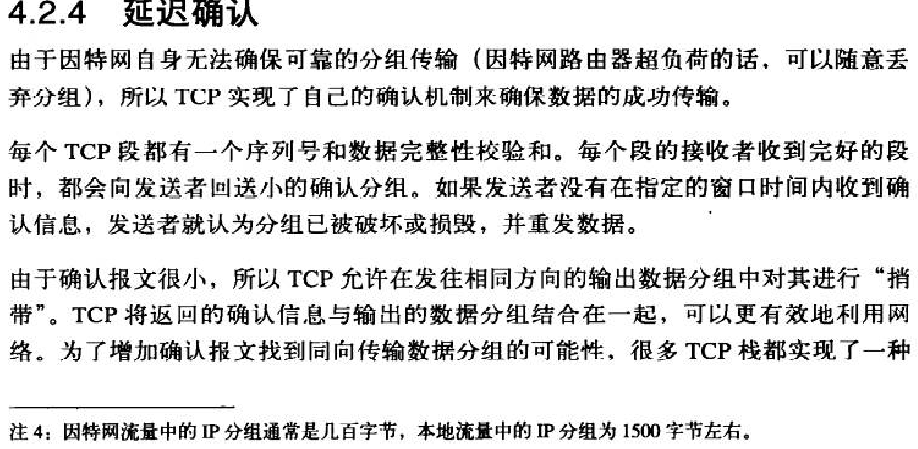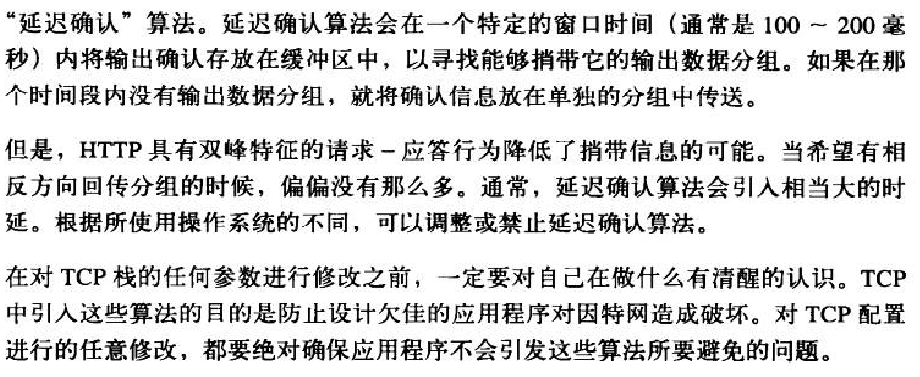wTCP本身已经确保传输的成功性。
HTTP The Definitive Guide
4.2.4 Delayed Acknowledgments
Because the Internet itself does not guarantee reliable packet delivery (Internet routers are free to
destroy packets at will if they are overloaded), TCP implements its own acknowledgment scheme to
guarantee successful data delivery.
Each TCP segment gets a sequence number and a data-integrity checksum. The receiver of each
segment returns small acknowledgment packets back to the sender when segments have been received
intact. If a sender does not receive an acknowledgment within a specified window of time, the sender
concludes the packet was destroyed or corrupted and resends the data.
Because acknowledgments are small, TCP allows them to "piggyback" on outgoing data packets
heading in the same direction. By combining returning acknowledgments with outgoing data packets,
TCP can make more efficient use of the network. To increase the chances that an acknowledgment
will find a data packet headed in the same direction, many TCP stacks implement a "delayed
acknowledgment" algorithm. Delayed acknowledgments hold outgoing acknowledgments in a buffer
for a certain window of time (usually 100-200 milliseconds), looking for an outgoing data packet on
which to piggyback. If no outgoing data packet arrives in that time, the acknowledgment is sent in its
own packet.
Unfortunately, the bimodal request-reply behavior of HTTP reduces the chances that piggybacking
can occur. There just aren't many packets heading in the reverse direction when you want them.
Frequently, the disabled acknowledgment algorithms introduce significant delays. Depending on your
operating system, you may be able to adjust or disable the delayed acknowledgment algorithm.
Before you modify any parameters of your TCP stack, be sure you know what you are doing.
Algorithms inside TCP were introduced to protect the Internet from poorly designed applications. If
you modify any TCP configurations, be absolutely sure your application will not create the problems
the algorithms were designed to avoid.

